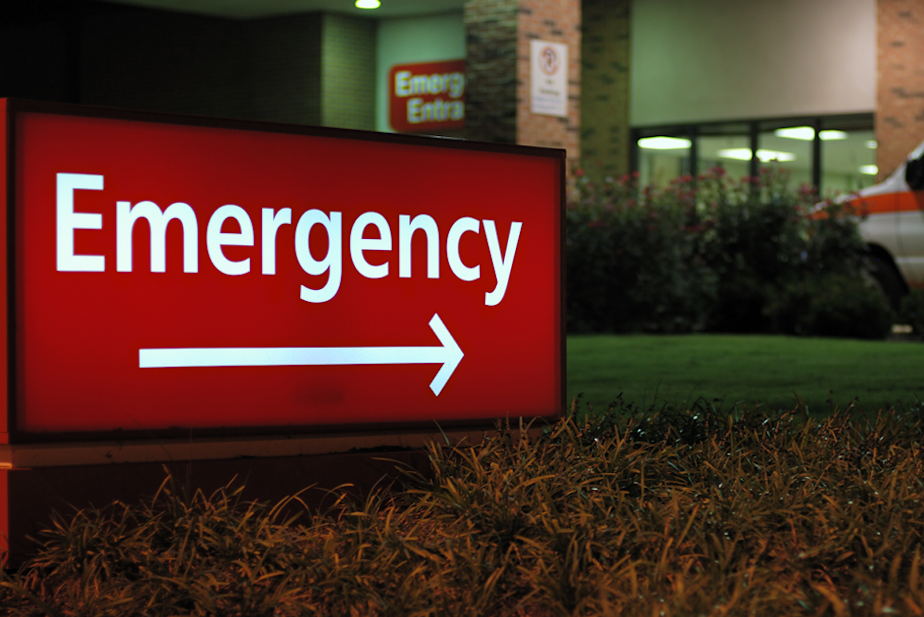As WA lawmakers consider a safe staffing bill, nurses warn of crisis conditions and risks to patients

The Omicron surge has now officially pushed Washington's hospitals to their highest weekly average since the start of the pandemic, nearly two years ago.
Compounding matters, there are fewer staff members to care for them, because many healthcare workers are themselves sick with Covid. But many nurses say staffing levels were a big problem before the pandemic, and they're pushing for change.
This interview has been edited for clarity.
To learn more, KUOW’s Kim Malcolm spoke with Jane Hopkins, a registered nurse and the executive vice president of SEIU Healthcare 1199NW. She spoke about what's different now, compared to before the pandemic.
Jane Hopkins: Well, now they have even more patients. That means that even the understaffing that we had before is worse now because now nurses are taking on even more patients, dangerous staffing levels, because there isn't enough staff to look after these patients.
At the same time, they’re expected to give the same care that they were giving before. So it's just really, really difficult. Waking up every day knowing I'm going to go into a situation where I'm not giving the best care to my patient, or there isn't enough staff to look after the patient, is really devastating and scary for a lot of the workers.
Kim Malcolm: When you say dangerous staffing levels, what do you mean?
It means that they have too many patients to look after, and they don't have time to give them the care that they need. Healthcare workers are worried that they're putting their license at risk every day.
Your union and others have been calling on lawmakers to pass a law that would create new staffing standards for nurses. A bipartisan bill was introduced this week in Olympia. What are the standards that you're calling for nurses who work on medical-surgical units?
It's really going to depend on where you work in the hospital. If you work in the emergency room, or you're an ICU nurse or somebody that's working with people having babies, it's different. We are really asking that nurses won't have more than four patients to look after at any one given time.
How does that compare with what nurses are handling right now?
In most places, nurses have five patients. There are some hospitals where the maximum number of patients is four, but with the crisis, they're asking people to take even more than that, more than five. It's really important that we do have this safe staffing standard because adding more patients to the nurse's workload is literally hurting patients every single day. It's not good for them.
Sponsored
The Washington State Hospital Association has said that they're against this idea of mandating nurse-to-patient ratios. They've said they want the Legislature to invest instead in increasing the health care workforce, to hire more people. What do you say to that?
I think we need to do both. We will do everything we can to support the Legislature and the hospital association to be able to increase capacity so that we can hire more health care workers. But I will tell you right now, for retention, it is really important that we have safe staffing standards.
It is also really, really important that people who come into this industry know that they're going to have these safe staffing standards, so they don't get burnt out and leave. We have to start with this because this is the only way that we'll be able to get more people into the workforce.
KUOW reached out to the Washington State Hospital Association about the bill being proposed by state lawmakers. A spokesperson said mandated ratios will not fix the staffing shortage, will lead to more delays in care, a decrease in access, and a loss of services in some communities.
Listen to the interview by clicking the play button above.





